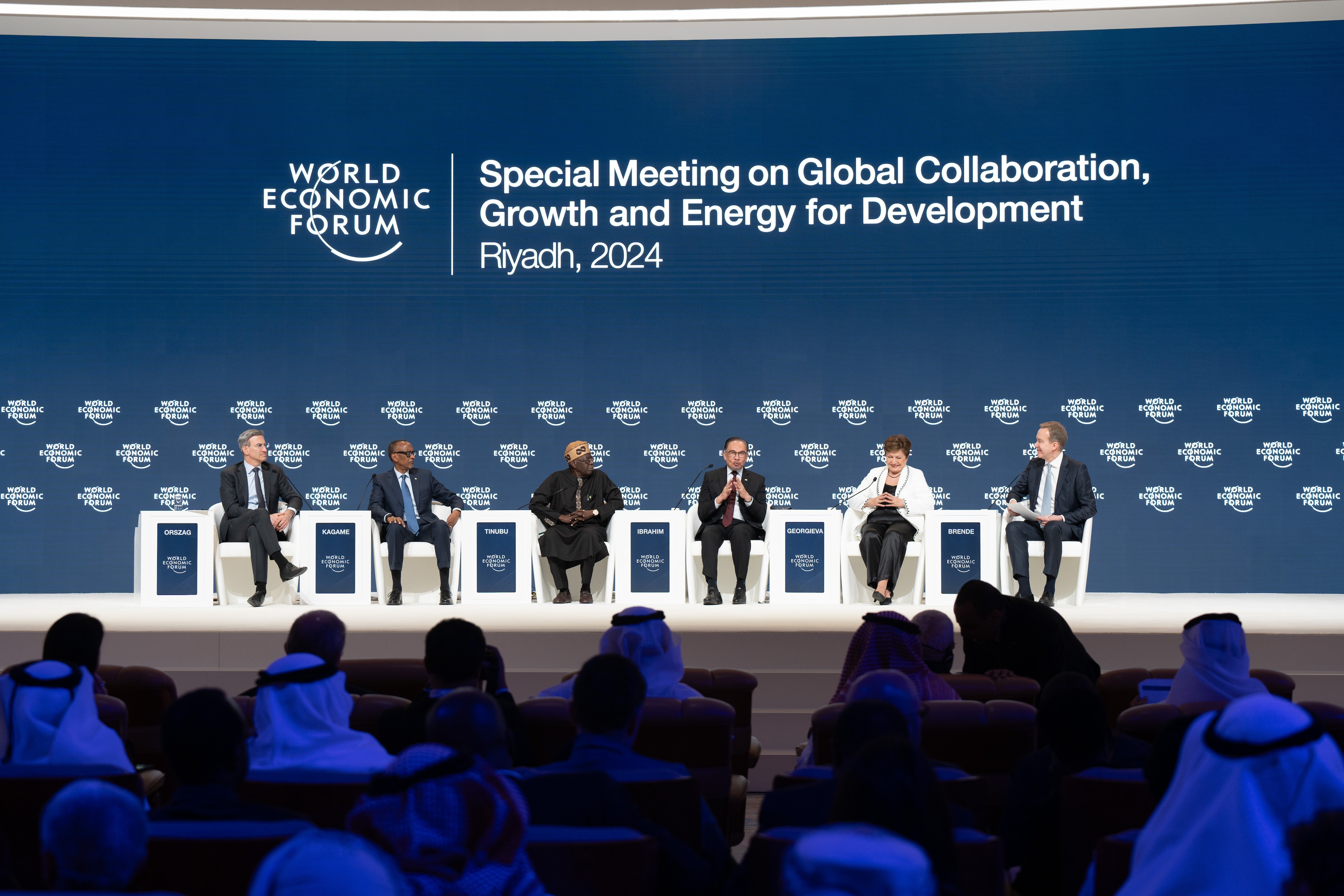A round-the-world boat race could change how we research ocean biodiversity

The 11th Hour Racing Team, as well as winning the round-the-world race, also contributed to biodiversity and ocean research. Image: REUTERS/Nic Bothma

Get involved with our crowdsourced digital platform to deliver impact at scale
Stay up to date:
Climate and Nature
Listen to the article
- In a first-of-its-kind data collection for racing boats, environmental DNA was gathered during a leg of The Ocean Race, the round-the-world sailing race.
- Scientists found a link between latitude and the abundance of ocean bacteria that break down plastic.
- The World Economic Forum’s Ocean Action Agenda is also working to harness ocean data as part of its innovation portfolio.
Ocean biodiversity is under threat — yet 95% of the ocean remains unexplored.
However, a first-of-its-kind project, using round-the-world yacht racers to collect data samples, may mark a completely new way to research ocean biodiversity — and it is using cutting-edge science to do so.
During The Ocean Race 2022-23, the 11th Hour Racing Team was tasked not only with winning the six-month-long race (which they did) but also with collecting ocean samples of Environmental DNA, known as eDNA — one of the most advanced ways to measure ocean health and biodiversity.
Now successfully completed, this method could represent a new, non-invasive way to research ocean biodiversity.
The world's fastest research vessels
The 11th Hour Racing Team took samples during leg 4 of the Race, 5,550 nautical miles from Itajaí in Brazil to Newport on Rhode Island, USA, in a pioneering initiative of The Ocean Race’s Science programme, which aims to support understanding about the state of the seas.
Between 23 April 2023 and 10 May 2023, 27 water samples were gathered and analyzed by the Cawthron Institute, New Zealand's largest independent science organization. Each sample included genetic material contained in microbes or shed by thousands of marine species through their waste products and skin cells.
The 11th Hour Racing Team gathered the samples through an onboard OceanPack; a specialized instrument that measures a range of ocean data, including salinity, temperature, carbon dioxide, oxygen and trace elements. The equipment worked automatically and continuously throughout the race.
eDNA was sampled through the OceanPack — the vessel's existing seawater flow-through system — which pumps two litres of water through innovative eDNA filters for later lab analysis. Trialling eDNA sampling via the OceanPack had the advantage of providing scientists with the opportunity to cross-check data and look for links and correlations.
Each sample collected contains millions of pieces of eDNA, from single-cell organisms, all the way up to lantern fish and the elusive Moray eel, providing a snapshot of life below the waves — and how it changes throughout the Atlantic Ocean.
eDNA: the next wave in ocean research
The more we know about the ocean, the more effectively we can protect it, and eDNA sampling is at the forefront of biodiversity testing. It is a powerful tool for understanding ocean health and how the major threats of climate change and pollution affect it.
Analysis of eDNA gives a comprehensive snapshot of the presence and diversity of the species sampled with high accuracy. This data is valuable for a number of reasons, including helping to track endangered species, monitoring diseases and pathogens and, when samples are compared over time, eDNA can provide insights into how the climate crisis is affecting marine life, for example, by shifting their geographic range.
eDNA testing has been increasingly lauded for providing a holistic view of biodiversity without the drawbacks of traditional research methods like catching species and aerial surveys, which can be harmful, expensive and limited. eDNA can also provide fast results, which can be vital given the urgency of the problems impacting the seas.
What the ocean racers found
Among the key findings of The Ocean Race eDNA collection was a striking correlation between the abundance of ocean bacteria (Pseudomonas and Acidobacter) that break down plastic and latitude, with analysis showing the highest levels of the bacteria (meaning greater plastic degradation) at lower latitudes near Brazil's coastline. While data from a single boat means that findings aren’t conclusive, this discovery highlights the powerful role of this type of eDNA technology and the need for further research. Understanding more about the geographic spread of these bacteria could provide valuable insights to help fight the marine plastic crisis.
Analysis also found that parasitic bacteria (exo or intracellular parasites), which can be a threat to the health of other species, including humans, are strongly linked with increased sea surface temperature and longitude, with higher abundances closer to landmasses. With record-breaking ocean temperatures documented in recent months, the influence of changing ocean temperatures on pathogenic microorganisms is another crucial area requiring further research.
Racing with a purpose
The eDNA sampling is part of The Ocean Race’s Racing with Purpose sustainability programme, which was created in collaboration with 11th Hour Racing with the aim of inspiring action to protect the ocean. The programme features an ambitious science initiative in which the fleet — arguably the fastest ‘research vessels’ in the world — collected over four million measurements during the six-month race, many from remote parts of the planet where data is lacking. This information will feed into major reports about the ocean and climate.
Having successfully trialed the sampling during The Ocean Race 2022-23, The Ocean Race aims to scale it up for future races and have more boats collecting this data, including in remote and vital parts of the ocean, where even less information is available for scientists.
Richard Brisius, Race Chairman, has joined Friends of Ocean Action, the World Economic Forum’s community of global leaders who are fast-tracking solutions to advance ocean health.
Don't miss any update on this topic
Create a free account and access your personalized content collection with our latest publications and analyses.
License and Republishing
World Economic Forum articles may be republished in accordance with the Creative Commons Attribution-NonCommercial-NoDerivatives 4.0 International Public License, and in accordance with our Terms of Use.
The views expressed in this article are those of the author alone and not the World Economic Forum.
Related topics:
The Agenda Weekly
A weekly update of the most important issues driving the global agenda
You can unsubscribe at any time using the link in our emails. For more details, review our privacy policy.
More on Forum InstitutionalSee all
Gayle Markovitz
April 28, 2024
Gayle Markovitz
April 27, 2024
Mirek Dušek and Maroun Kairouz
April 27, 2024
Kate Whiting
April 26, 2024
Spencer Feingold and Gayle Markovitz
April 19, 2024
Kate Whiting
April 17, 2024






